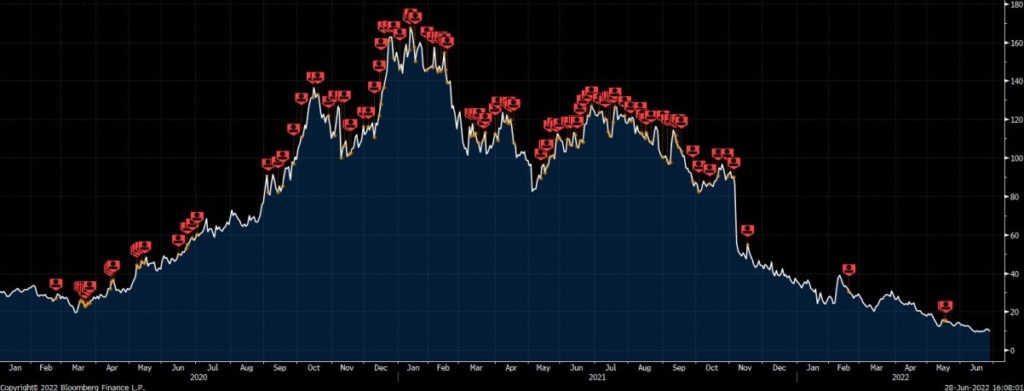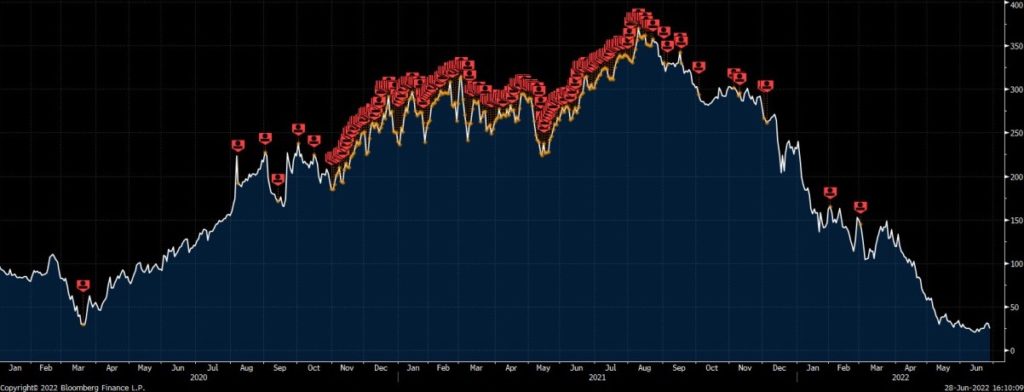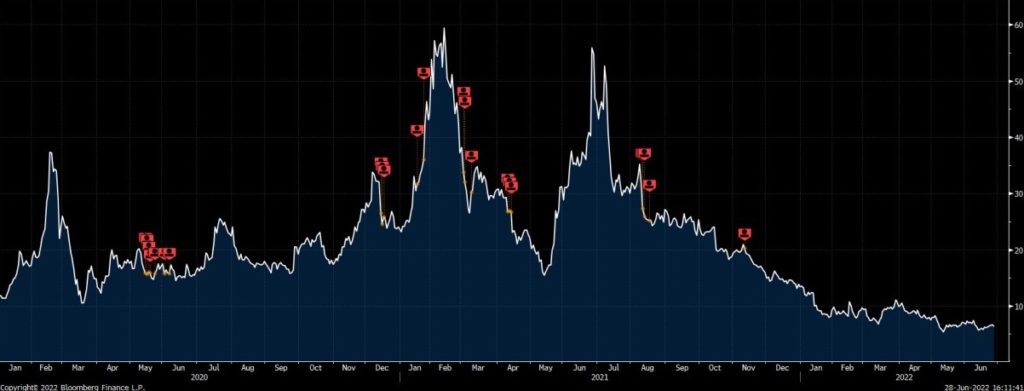Back in December I noted that, even as retail investors were putting on risk in the equity markets to a degree we had never seen before, corporate insiders were taking the other side of the trade and selling at the fastest annual pace on record. And while many are now marveling at the damage that has been done to some of the stock market’s speculative favorites, I think it’s important to not lose sight of the fact that the insiders at many of these companies were sending a very clear caution signal in the lead up to the recent crash.
Over the past two years insiders at these companies sold over $23 billion in personal holdings. https://t.co/iEiGzOZPUJ
— Jesse Felder (@jessefelder) June 24, 2022
For example, let’s just look at the first three companies on the list above. Over just the past two years insiders at Peloton sold over 6 million shares for proceeds of more than $700 million. Leading the way was (former) CEO John Foley who sold a million shares at prices over $100 per share. The stock price of the exercise equipment company trades under $10 today. Below is a chart (via Bloomberg) of Peleton’s stock price and insider transaction history (the red flags are sales) since January 2020 and I think it really speaks for itself.
At Carvana, insiders sold more than 15 million shares of the online used car dealer for proceeds of more than $4 billion. That’s an average price of $260 per share versus its current $25 share price.
And at Virgin Galactic insiders cashed out a cool $1 billion, selling nearly 42 million shares at an average price of over $25 per share. Chamath Palihapitiya led the way by selling 10 million shares in March of 2021 for proceeds of $310 million ($31 per share). The space tourism stock currently trades at just over $6.
To be perfectly clear, I don’t fault these executives for taking the once-in-a-lifetime opportunity to profit from a speculative mania in their shares. My point here is simply to draw attention to the fact that investors ought to spend more time watching what insiders do and less time listening to what they have to say. Actions in the markets, as they do everywhere else, generally speak much louder than words.
'A CEO using a recently adopted plan to sell stock ahead of a spate of negative news "isn't a smoking gun, it's a smoking bazooka," because it raises a reasonable suspicion that the CEO could have been trading on inside information.' https://t.co/hAJlJSA9VX
— Jesse Felder (@jessefelder) June 29, 2022
In real time, investors in these stocks who were aware of the massive insider selling and didn’t follow by selling their own shares likely rationalized the decision by telling themselves, ‘Insiders sell for countless reasons; there’s only one reason they buy,’ the old Wall Street trope. However, when insiders all decide to sell significant numbers of shares and they do so all at once, it’s hard to see more than one very obvious reason to explain it.




